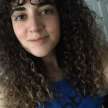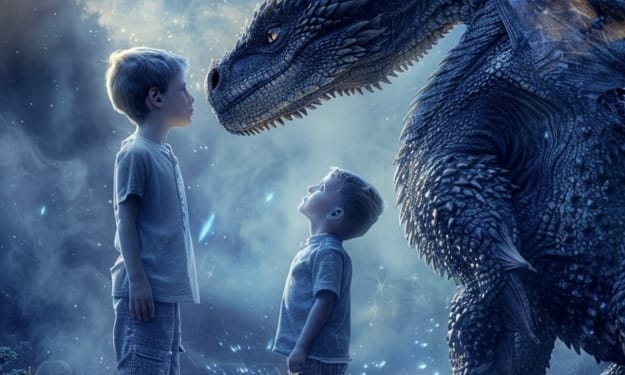The Worst of Us
Reviewing books about the Holocaust

My evaluation of a book that changed me led to this conclusion: it was two books. And the books are about the same thing...sort of. There is a singular period of time that must be learned in every history class. That is WW2 and the Holocaust. These two books are about that time.
Now, tempted as I am to retrieve the details of each book and recount them accurately, I feel that would hinder my ability to elucidate their personal impact. So, I issue a preemptive apology for the gaps in my memory. The books are far more meaningful than the specificity in their respective plots.
-
#1 Milkweed by Jerry Spinelli

I read this when I was around 12 years old. I'm 27 now, so it's been a few years. This is the first novel that made me cry. I'm talking the page is so blurry, I can't make out any of the words, am I even holding a book anymore, let's close it and stare at the wall kind of cry. I have never felt the lasting hold of a character so deeply as I did with the young nameless boy identifying himself as Stopthief (he is given the name Misha by another orphan, later in the story). I am drawn to books in first-person perspective because, if only for a moment, I get to walk in someone else's shoes. Even as a twelve-year old, my heart broke for the naivety of this orphaned eight-year old (was he eight? maybe younger..) lost in the exact part of the world being ripped open by the worst in humanity. Misha is only an observer; he has no opinion or allegiance, save to the other orphans who are the only people who pay him any mind. As such, he doesn't feel the same emotions as someone who has the benefit of learning explicit values through direct teaching. Yet, he can see the 'wrongness' all around him.
Tw0 particular moments are seared into my brain. The first: the fear I felt when Misha encounters a 'jackboot' on the street and loudly proclaims, " I am a Jew!" (no Misha, run away from that evil man!). The second: Misha is staring at a member of the Gestapo as he speaks to a Jewish man on the sidewalk in front of his own shop (marked with a Star of David to deter patrons). The conversation doesn't seem particularly hostile, at least, not to Misha, until the Jewish man is forced to clean the pavement with his beard. Misha just watches. What else can he do?
This novel beautifully and painfully laces a web of questioning that we must all endure in our lifetime: Who am I? Where do I come from? And what does that mean, to me and the rest of the world? This young boy is, in his short lifetime: a nameless orphan on the streets of Poland, a thief just trying to eat, Misha, the Russian son of a horse-trader and fortune-teller, a sibling, a Gypsy, a Jew, and a captive. He is human. He is hated, forgotten, known, cared-for. He is just a boy.
I have only read this once. Spinelli told the story perfectly. You only need to read it once.
-
#2 Night by Elie Wiesel

Everyone needs to read this book. It is a true story. I still can't believe it's a true story. It reads like fiction. I'm not sure how old I was when I first learned about WW1 and WW2 but every teacher stuck to the facts and important dates. I imagine it would be difficult to stray from recorded evidence when dissecting the nuances of a worldly event concluding seventy years prior. Here is everything I was missing in my understanding, in a simple, compelling, and painfully sincere autobiographical tale. And, it's even more horrifying than I can comprehend.
Elie is 15 years-old when he and his family are forcibly taken to concentration camps (for Elie, that was Auschwitz, followed by Buchenwald). I recall three pertinent parts of his story. First is his love and worry for his father, who starts the harrowing journey with less physical strength than Elie. In the face of intense suffering, how do we view death? In theory, it is the worst fate imaginable, but perhaps not in all instances. The second part of the story that strangely sticks out to me (perhaps Wiesel himself focused on it in his retelling, but I'm not sure) is the foot injury he suffered. For some reason, this focus, for me, illustrates the kind of man Elie seems to be. While he doesn't shy away from speaking of the harsh treatment suffered by Nazi hands, he is preoccupied by the notion that his foot might be his downfall. Made to walk and run for an agonizing length of days and distance, in the bitter cold and snow, Elie feared being trampled or shot on the spot if he couldn't keep up. His only goal: survive. He is introspective and strong, so freaking strong. The third and, in my opinion, most important memory of Elie's: screaming in the cattle car. When the Jewish people are treated as less than human, literally carted around like animals, their morality slips away. Elie's counterparts silence a woman who has lost grip on reality and begun to scream without ceasing. Evil breeds evil. Somehow, in the midst of torture, pain, and apathy for life, Elie doesn't succumb.
Elie Wiesel was awarded the Nobel Peace Prize in 1986. He chose peace after all his suffering. Even in the darkest moments of his story, somehow you can feel his peace. It couldn't be extinguished.
-
While Night is so named for the evident despair of the Holocaust, Milkweed is a symbol of resilience and hope. In each of these books (about the same thing, sort of), this dichotomy is well-documented. We are capable of truly terrifying evils, often forced to endure them against our volition, and yet, who are we on the other side, or even in their midst? These books changed me. They are both cautionary tale and elucidation of the valiant human spirit. They are the worst of us. They are the best of us.
About the Creator
Bugsy Watts
Got bit by the writing bug.
Instagram: https://www.instagram.com/bugsywattspoetry/






Comments (1)
Even in your reflection, I am chilled by Night. Perhaps I must read it, but I don't want to.